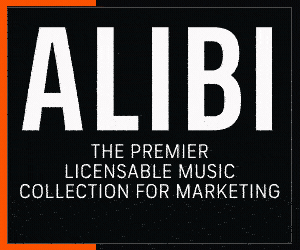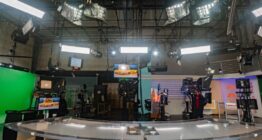Industry Insights: Lighting gear experts spotlight new and upcoming product features

Subscribe to NewscastStudio for the latest news, project case studies and product announcements in broadcast technology, creative design and engineering delivered to your inbox.
Lighting is one of the key elements of presentation, adding dimensionality to design and making talent stand out.
In this installment of our Industry Insights roundtable, our experts from the field of lighting gear look at upgrade cycles, new advancements in lighting technology and how IP production is impacting their products.
What feature is driving upgrades or sales today for studio lighting?
“The manufacturer with the bigger marketing budget always gains the most sales, no matter how good the product may be. Making high-quality products without a huge marketing budget is more long-term strategy. Our best features are the quality of light, the quality of shadow rendering, the absolute absence of flicker, precise color points, proper optical systems and electronics—so in that respect our feature is good light,” said Peter Plesner, CEO and founder of BB&S Lighting.
“Full spectrum color in lighting is key. Before, it was daylight, tungsten, or in a perfect world, dynamic white. Now, with full-spectrum LED engines, any color temperature can be achieved at a very high CRI. Our Fuze and KL Series products offer these cutting-edge LED engine solutions,” said Eric Loader, sales and marketing director at Elation Professional.
“The increased demand for content and the pandemic is driving sales, and it’s also resulted in some supply chain issues across our industry. We also see a downturn in location shooting with crew density and increased demand for studio and controlled environments, which has required more lighting equipment. With stricter protocols, there’s been an increased demand for remote control and remote monitoring of production to have fewer people on set. We have been fortunate because our products, the SkyPanel and Orbiter, can be controlled via web remote. In addition, we are seeing them used on some of the industry’s initial fully IP studios,” indicated John Gresch, SVP of sales and marketing for ARRI.
“The very fast move to 4K streaming has opened a lot of eyes to quality of color in broadcast lighting. It is akin to the move from black and white to color broadcast so many years ago. With the possibility for higher clarity, contrast and nuance in photography, accurately and reliably rendering skin tones has become an absolute must,” said a representative of ETC.
“Higher standards of color rendering, higher output and better control options. Consistently accurate color rendering is key when lighting talent and with the general capabilities of LED lights now defined, more and more studios are switching on to manufacturers that will make their talent look better. Higher output will adapt to more applications with simplicity, enables more diffusion options and alongside better control options gives flexibility for positioning,” pointed out Michael Herbert, product manager for Litepanels.
“Mobility and predictability. Developing skillful workflow techniques around all these new technologies is still the main thing that gets you hired, so content creators big and small need agility and reliability like never before,” said Steve Strong, the CEO of Quasar Science.
“Plug-and-play PoE systems are a popular solution where electricians still can’t get onsite. Wireless DMX is also helping to de-clutter a lot of lighting grids for broadcasters,” said Kathy Katz, a partner at Brightline.
What advancements or updates are coming to your products this year?
“We are in the process of developing a handful of new products some of which will launch over the summer, so stay tuned,” Plesner noted.
“Efficiency and performance are being enhanced with new LED engine developments. In addition, more events are going outdoors so we can work on adding more outdoor IP65-rated lighting products to support these productions,” Loader said.
“During the pandemic, we started shipping our new LED fixture, the Orbiter. Our focus this year will be to train crews on this product and develop accessories like our highly anticipated projection optic. We will also have some exciting announcements in the areas of remote capabilities,” Gresch said.
“Wireless control will continue to be enhanced, and more and more delicate control is just around the corner. We have only begun to unlock the possibilities that are already inside our fixtures,” explained the ETC representative.
“We are focussed on expanding methods of lighting control, increasing output for adaptability and combining with greater wireless capabilities. This will be achieved through a range of both hardware and software upgrades all designed to give the end user faster install times, seamless operation and greater overall control of their lighting on set,” said Herbert.
“LED studio lighting is becoming more sophisticated – and we’re making it easier as well. More Brightline products will have high color rendering and variable white options, as well as PoE control options and app-based control. We’ll also be introducing accessories for our popular ZELo desktop studio light for remote video applications, including a phone/tablet holder and desk-clamp mount,” Katz said.
How are you taking IP production and remote workflows into account in your products?
“We did some tests in co-operation with Danish broadcaster TV 2, Telia (leading Nordic Telco) running lights over 5G. Eventually this system that we programmed was used at an IBC and EBU accelerator program demo in Amsterdam on September 10, 2020. All the lights were controlled over 5G from several remote spots in Europe, so I think we are on the forefront in that respect. This gets interesting when all the signals to and from—for example a Steadicam and lights—are controlled over one stream of 5G,” said Plesner.
“With the use of our Obsidian Controls ONYX remote and manager lighting control solutions, remote control of the lighting system installed is critical and we are working to make it easier to control lighting remotely,” Loader explained.
“The demand and discussion around IP production and remote workflows have been around for a few years now. Luckily, our product teams have had the foresight to include these capabilities in our products. Whether it’s the ability to change the color or temperature of a fixture mounted in a hard-to-reach place or giving remote access to your lighting designers around the world, ARRI has incorporated these capabilities in our modern fixtures, including SkyPanel, L-series, and Orbiter. Now, we are also beginning to see studios adopt and use that IP infrastructure across their studio environment because the last year has accelerated the demand for the benefits these technologies bring to their operating environments,” said Gresch.
“We recognize that centralized, wireless remote control is a key part of the future of broadcast studio lighting. We have already released a LAN CRMX system (Litepanels Apollo) that can enable remote operation through VPN connections and are exploring the possibilities to add in WAN connectivity to expand off premise capabilities,” said Herbert.
“Being career filmmakers we were accustomed to mobile offices with remote communications and networking however what we are seeing brings a whole new meaning to ‘remote control.’ Our new lights include network switches and ethernet nodes for advanced data networking as well as the ability to accept standard ANSI protocols like sACN and ArtNet,” said Strong.
“We offer smart lighting though PoE control and IP-addressable drivers, and Brightline fixtures can integrate to an array of motion sensors. Our ZELo desktop studio lighting supports voice control through Alexa and Google Assistant. Plus, our Brightline Smart app offers programmable control through Android and Apple devices,” said Katz.
Participants
Peter Plesner, BB&S Lighting
Eric Loader, Elation Professional
John Gresch, ARRI
A representative of ETC
Steve Strong, Quasar Science
Michael Herbert, Litepanels
Kathy Katz, Brightline
Subscribe to NewscastStudio for the latest news, project case studies and product announcements in broadcast technology, creative design and engineering delivered to your inbox.






tags
ARRI, BB&S Lighting, Brightline, elation professional, Eric Loader, ETC, IP Production, John Gresch, Kathy Katz, led lighting, lighting fixtures, lighting for tv, lighting gear, lighting instruments, Litepanels, Michael Herbert, Peter Plesner, Quasar Science, Steve Strong
categories
Broadcast Lighting Design, Featured, Industry Insights, IP Based Production, Lighting and Lighting Design, Voices